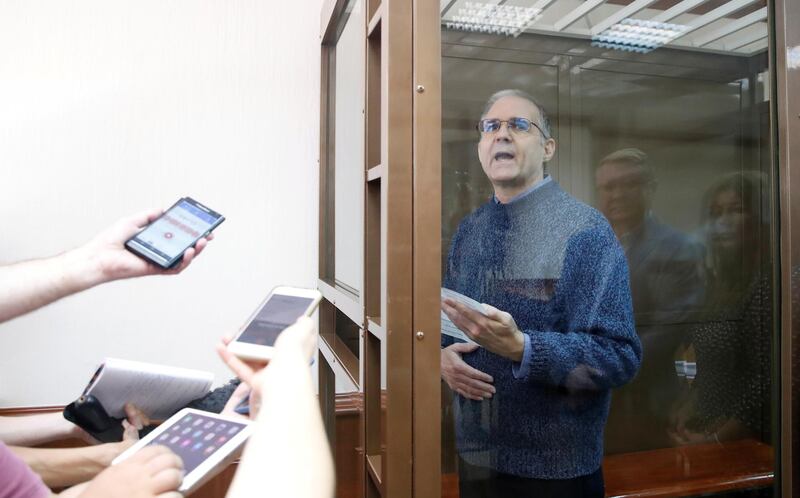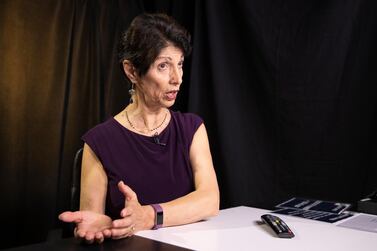A senior Russian official has hinted that the Kremlin could free a former US Marine who was detained on spying charges in exchange for the release of a Russian pilot.
Russia’s deputy foreign minister Sergei Rybakov on Monday called on the US to release Konstantin Yaroskenko, who was arrested in Liberia in 2010 for plotting to smuggle cocaine over US borders.
"Free Yaroshenko. Swap him for an American or Americans who are serving their sentence here," Mr Ryabkov told the Interfax news agency.
The comment has fuelled speculation that the Kremlin could be willing to release former US Marine Paul Whelan, the most high-profile US citizen detained in Russia.
Mr Whelan, a security director for a US car parts maker, was detained in December last year in a luxury hotel in central Moscow.
He had in his possession a flash drive, which was reported to contain the names of Russian agents.
Mr Whelan is a citizen of the US, Canada, the UK and Ireland, and has denied the charges, saying he was in Russia to attend a friend’s wedding.
He said believed the flash drive, which he said was planted by a friend working for the Russian government, contained photos of a trip to an Orthodox monastery outside the capital.
Since Mr Whelan’s detention more than six months ago, he has been described by foreign policy observers as a low-value asset of little concern to politicians and diplomats in western capitals.
The White House has made almost no public mention of the case.
The fact that Mr Whelan was not in Moscow on a diplomatic passport suggests he was not working for US intelligence, analysts say.
During his last court appearance in late June, a judge denied a request for Mr Whelan to be released under house arrest.
The security director then called on the leaders of the four countries in which he holds citizenship to lobby for an end to his “absurd political kidnapping”.
Addressing US President Donald Trump from a glass cage in the courtroom, Mr Whelan said: “Mr President, we cannot keep America great unless we aggressively protect and defend American citizens, wherever they are in the world."
In recent months, the US embassy in Moscow has made increasingly vocal statements about the changes against Mr Whelan, his detention at Lefortovo Prison, known for housing alleged spies and political prisoners, and his health.
“Paul Whelan gets basic medical care at Lefortovo, but his condition needs more than the prison can provide,” Andrea Kalan, a US embassy spokeswoman, tweeted on Monday.
Mr Whelan has not spoken publicly about what medical condition he suffers from and his family have declined to elaborate.
“We asked in April for an outside examination at no cost to the Russian government. The request was denied, yet Paul’s condition worsens,” Ms Kalan said.
“The welfare of US citizens abroad is our highest priority.”
In later comments carried by the state-run RIA Novosti news agency, Mr Ryabkov said it might be too early to discuss Mr Whelan’s release, given that he is yet to be tried.
Russian political columnist and analyst Vladimir Frolov said that Mr Ryabkov's public offer for a swap is a reflection of the Kremlin's official position and interest.
“A public statement is meant for the US media, to impress on Mr Trump and influence his decision,” Frolov said.
“It is normal diplomatic practice to begin resetting relations using prisoner swaps.”
Ties between Moscow and Washington have plummeted since Russia’s annexation of the Crimean Peninsula from Ukraine in 2014.
Western countries hit back with economic sanctions on Russia, which doubled after the US accused the Kremlin of interfering in its 2016 presidential elections.
Despite underlying differences, Frolov said a prison swap could pave the way for Russia and the US to “clear the air and build trust".







